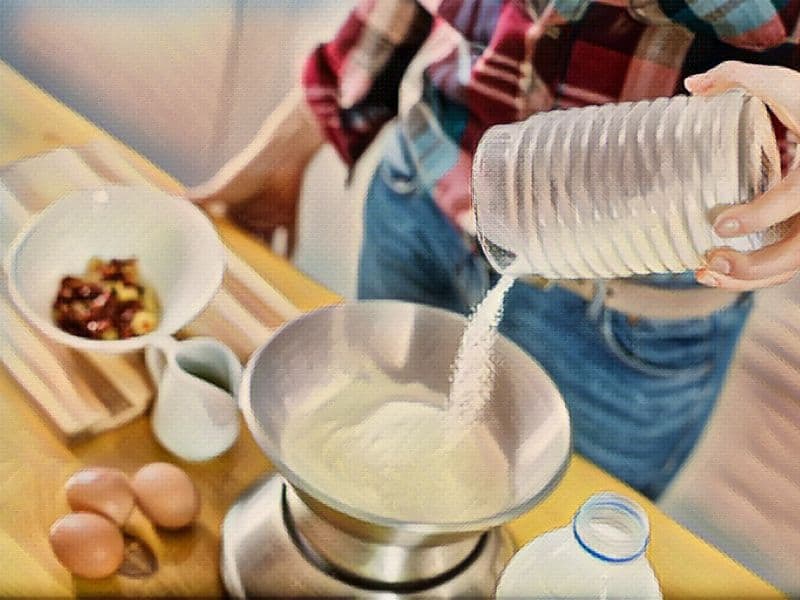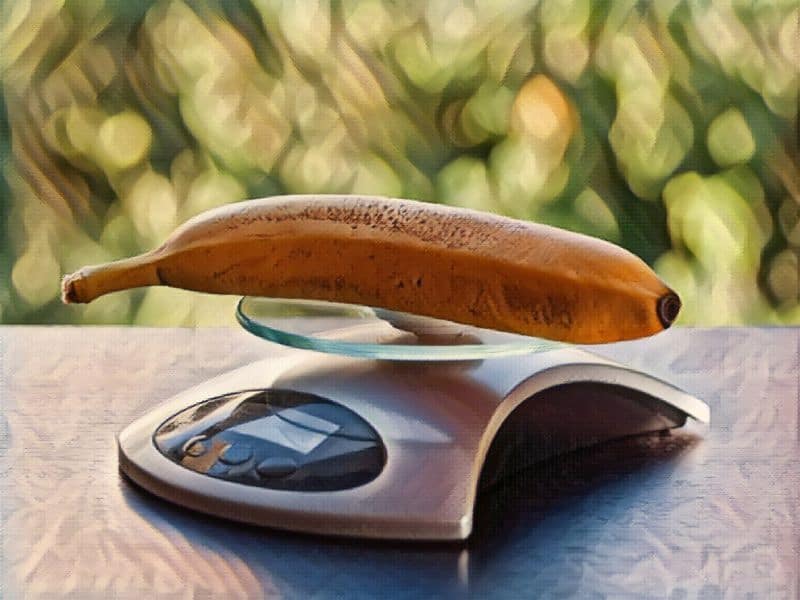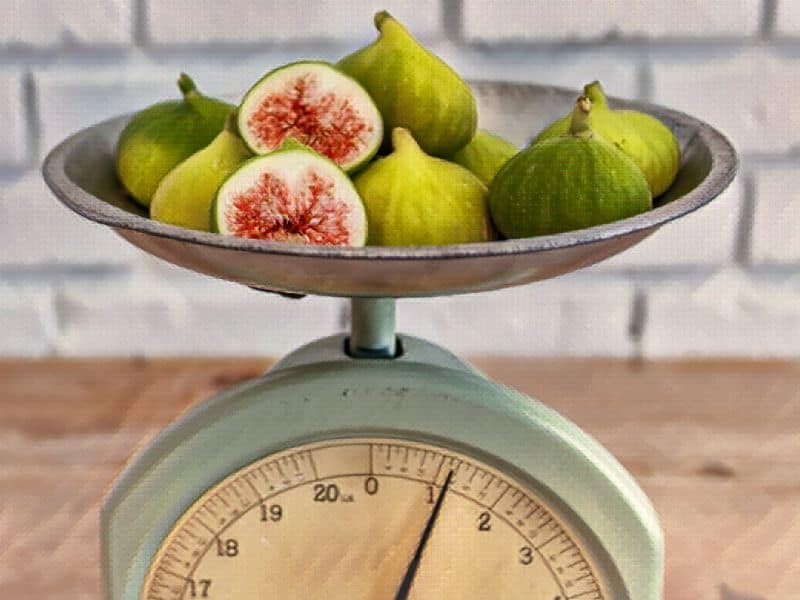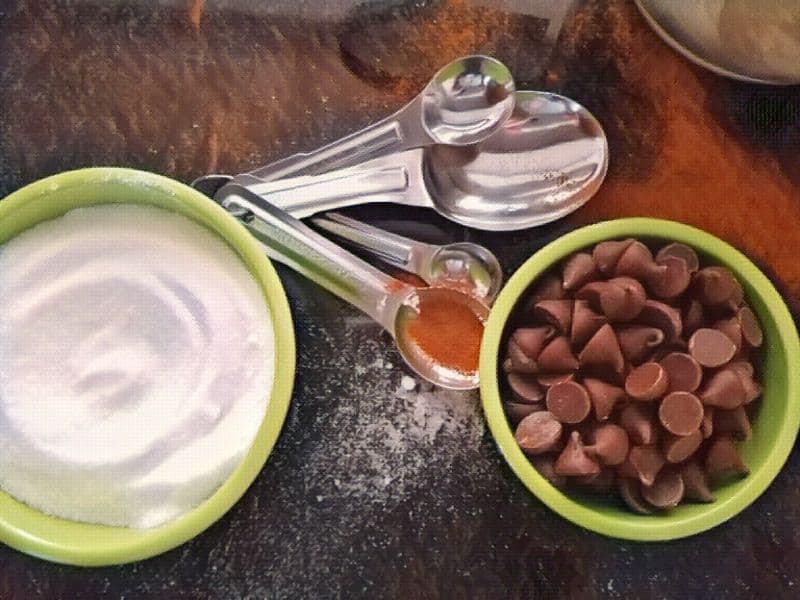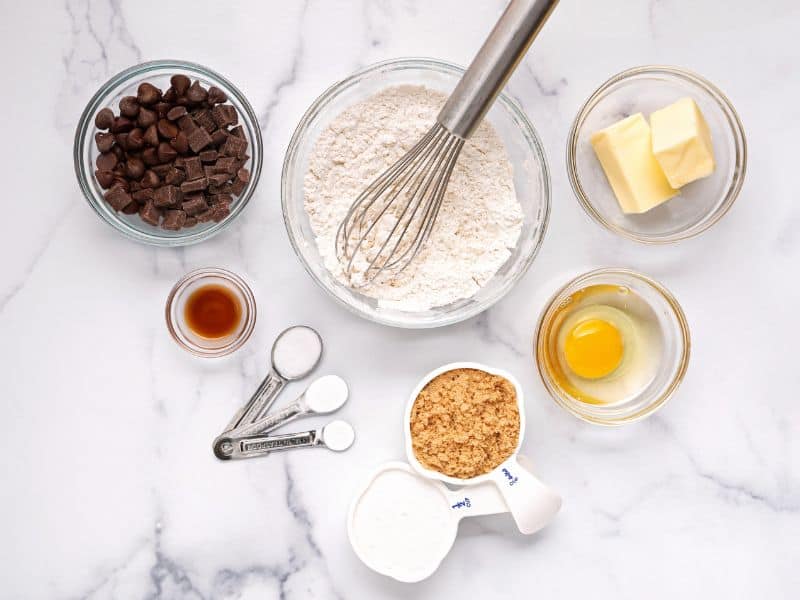Have you ever been in the middle of baking or cooking something and had to ask yourself “how many ounces are in a cup?” Well, you’re not alone.
It’s a common question that can be confusing, especially if you’re dealing with dry ingredients or converting measurements from the US to the UK.
Recipes comes in all forms of measuring units, and it can be a bit tricky to convert.
But fear not!
I’ve got you covered on any unit of measurement with this quick and easy guide on how many ounces are in a cup.
I’ll break down the answer for you and make it as simple as possible.
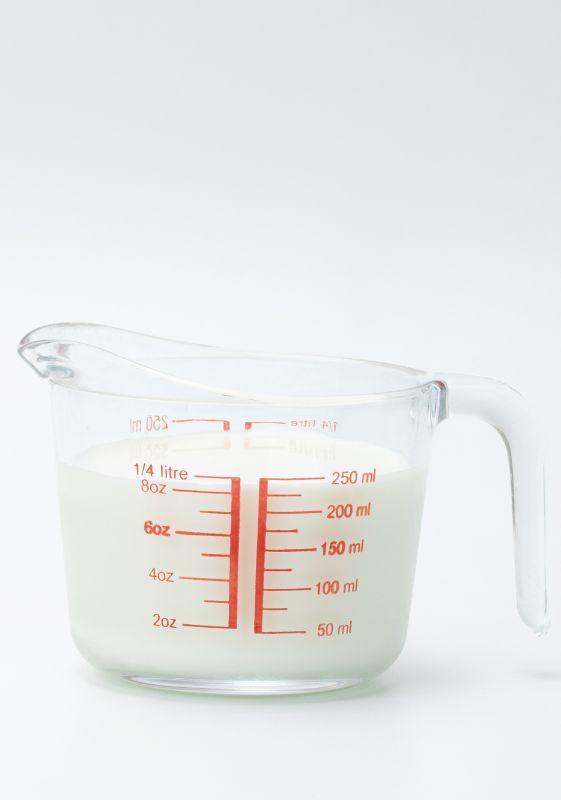
What is an Ounce?
An ounce is a unit of mass or weight, and it’s the most common unit used to measure ingredients.
It is also known for it’s abbreviation, oz.
Dry Ounce
A dry ounce (oz.) is a measurement of weight.
A dry ounce can be used to measure both solids and non-solids, such as flour, sugar, salt, and other grains.
The most common way to measure a dry ounce is with digital scales or measuring cups specifically designed for dry ingredients.
Fluid Ounce
A liquid ounce also known as oz. is a measurement of volume.
This can get confusing because one liquid ounce does not necessarily equal one dry ounce.
For instance, half-a-cup of water weighs four ounces but takes up eight liquid ounces of space.
In other words, the conversion from liquid to dry ounces is not 1:1.
It varies depending on the ingredient being measured.
How Many Tablespoons Are In A Cup?
How Many Teaspoons In A Tablespoon?
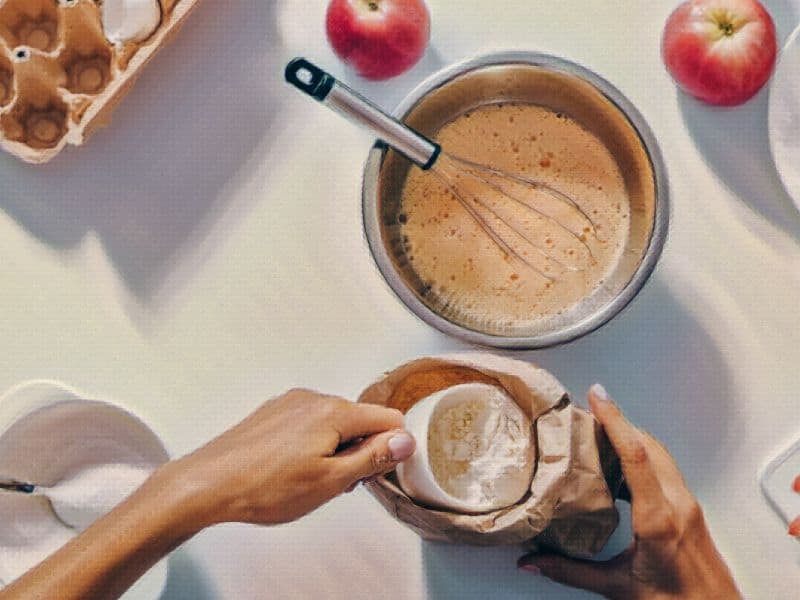
Measuring Liquid and Dry Ounces?
The first thing to understand is that there are two types of ounces: fluid ounces and dry ounces.
Fluid ounces measure liquid volume while dry ounces measure mass or weight.
A cup measures both liquid and dry ingredients, so it’s important to determine whether a recipe calls for fluid or dry ounces before adding any ingredients to your mixture.
How to Fill in a Dry Measuring Cups
When measuring dry ingredients, it’s important to use a dry measuring cup.
- Step 1: Fill the cup with the ingredient you are using.
- Step 2: Do not pack the ingredients down or shake off any excess.
- Step 3: Level off the ingredient with a knife or other flat edge. If the ingredient is fluffy like flour, spoon it into the cup until it is overflowing.
- Step 4: Then use a flat edge to level it off.
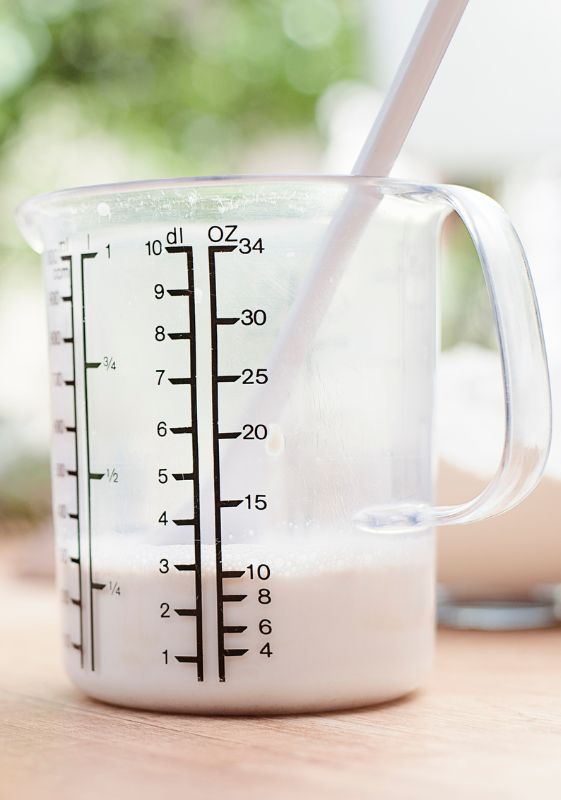
How to Fill in a Wet Measuring Cups
When measuring liquid ingredients, use a wet measuring cup.
- Step 1: Pour the ingredient up to the desired measurement line.
- Step 2: Check the ingredient’s level by looking at it from eye-level.
- Step 3: If necessary, adjust the ingredient’s level by adding or removing liquid until it is at the desired measurement line.
How Many Ounces in a Cup
The simple answer is that there are 8 ounces in 1 cup.
This standard measurement applies to dry ingredients like flour, sugar, and oats.
However, when measuring wet ingredients like liquids or yogurt, it can be slightly different depending on what you’re measuring.
For example, 8 fluid ounces makes up 1 cup of liquid. But when measuring yogurt or cottage cheese, 8 ounces equals about 7/8 of a cup.
Although these differences may seem small, they can make a huge difference in how your recipe turns out.
So it’s important to always double-check the measurements before you start baking!
Liquid Ingredients Conversion Table
| Cups | Ounces |
|---|---|
| 1/8 Cup | 1 Ounce |
| 1/4 Cup | 2 Ounces |
| 1/3 Cup | 2 ½ Ounces |
| 1/2 Cup | 4 Ounces |
| 2/3 Cup | 5 Ounces |
| 1 Cup | 8 Ounces |
| 1 ½ Cups | 12 Ounces |
| 2 Cups | 16 Ounces |
| 3 Cups | 24 Ounces |
| 4 Cups | 32 Ounces |
Cups for Measuring Liquids
When measuring liquids you should use a liquid measuring cup.
Liquid measuring cups are made of either plastic or glass and have markings on the side that indicate how much liquid is in the cup.
These measurements are usually denoted in milliliters, but many also come with ounces marked as well.
It’s important to note that liquid measuring cups are only used to measure liquids and should never be used for dry ingredients.
Dry Ingredients Conversion Table
| Ounces | Grams |
|---|---|
| ½ Ounce | 15 Grams |
| 1 Ounce | 30 Grams |
| 2 Ounces | 60 Grams |
| 3 Ounces | 85 Grams |
| 4 Ounces | 115 Grams = ¼ Pound |
| 8 Ounces | 225 Grams = ½ Pound |
| 12 Ounces | 340 Grams = ¾ Pound |
| 16 Ounces | 455 Grams = 1 Pound |
| 32 Ounces | 907 Grams = 2 Pounds |
Measuring Cups for Dry Ingredients
When measuring dry ingredients like flour or sugar, you should use a dry measuring cup.
Dry measuring cups are usually made of metal, plastic, or ceramic and come in various sizes.
These measuring cups are also marked with measurements so you can easily measure out the right amount of ingredients.
When measuring dry ingredients make sure to level off the top of the cup and try to pack or fill lightly for an accurate measurement.
Dry Ingredient Conversion Charts
Sugar Conversion Chart
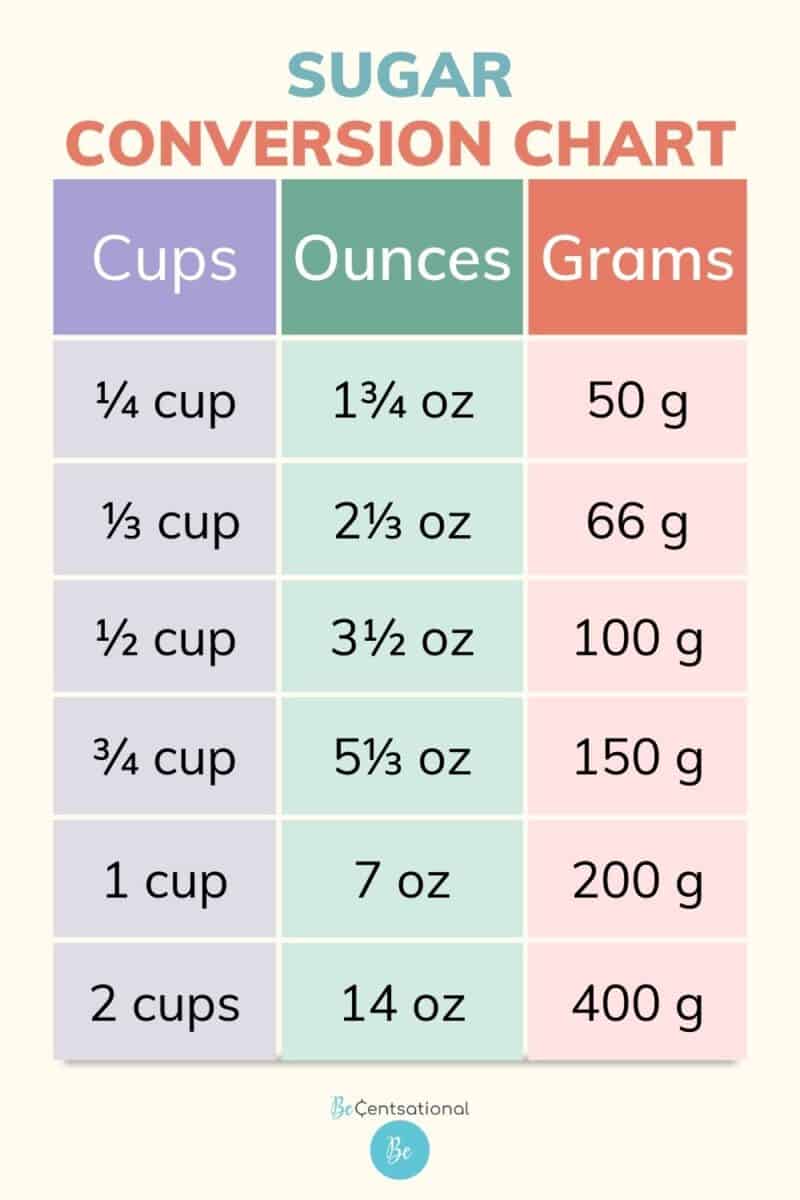
Flour Conversion Chart
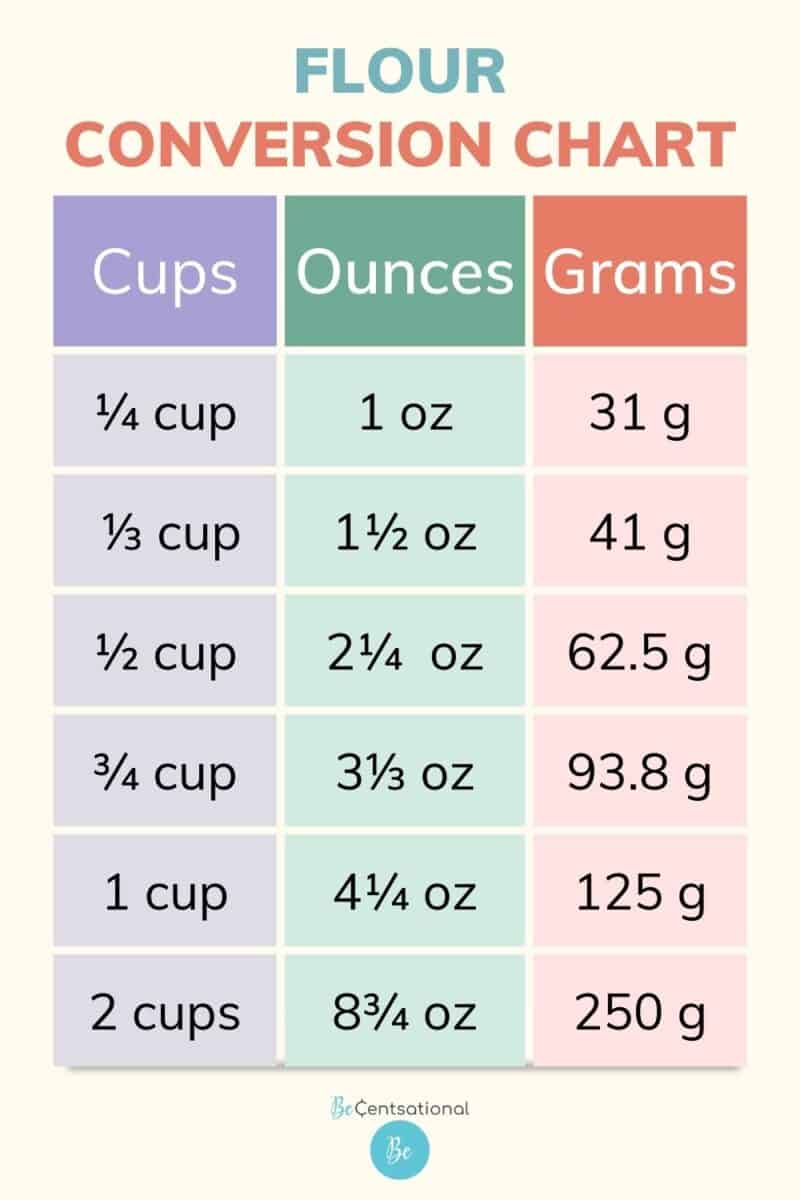
Rice Conversion Chart
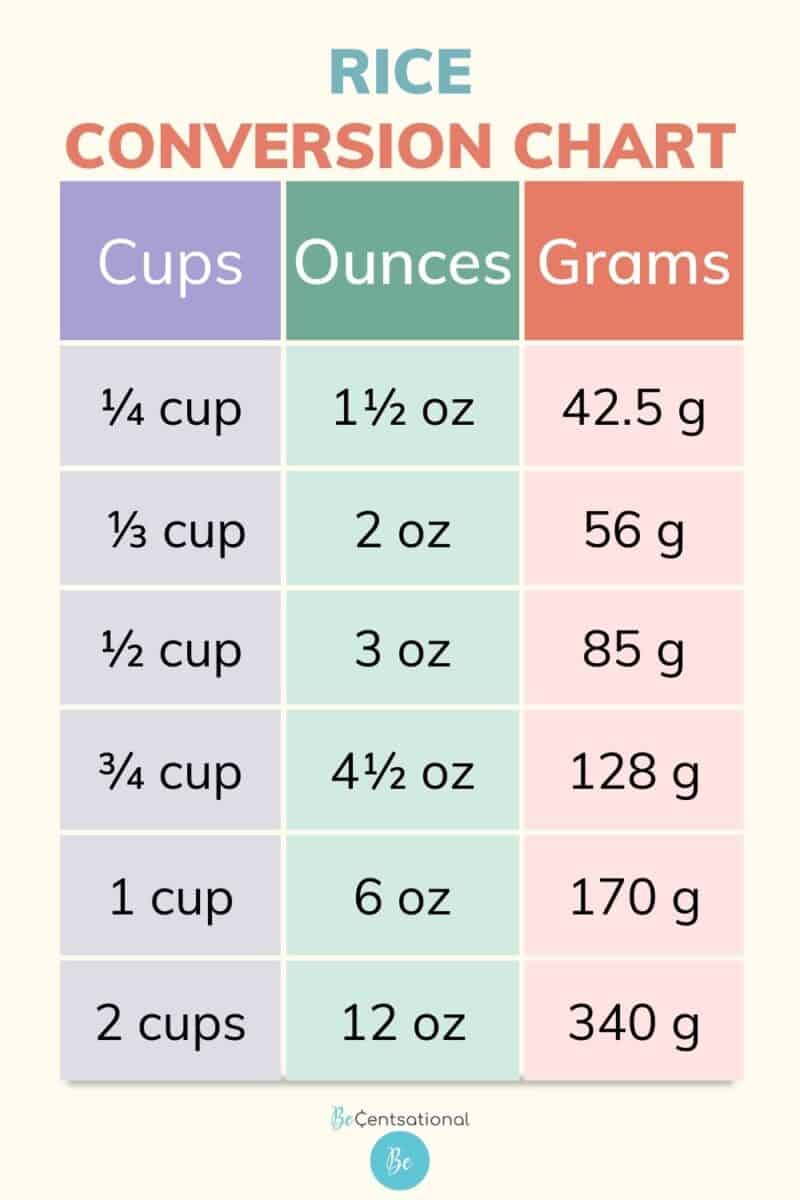
What’s The Difference Between a Dry Ounce and A Fluid Ounce?
The reason these measurements differ is because they use different types of cups.
Liquid cups measure volume while dry cups measure weight.
This means that 1 cup of flour weighs more than 1 cup of water due to their differing densities.
When it comes to baking recipes that require precise amounts of each ingredient, it’s important to make sure you’re using the correct type of measurement!
Difference Between American and British Cups
Let’s take a look at the difference between American and British cups and try to clear up some of the confusion.
When it comes to making conversions for measurement units, it’s important to note the type of measuring cup you are using.
The first thing you should know is that an American cup is actually equal to 8 fluid ounces, while a British cup is equal to 10 fluid ounces.
In terms of weight, 1 American cup weighs approximately 240 grams while 1 British cup weighs 300 grams.
This means that when it comes to measuring dry ingredients like flour or sugar, 1 US cup will weigh slightly less than 1 UK cup.
Measuring Tips
These tips will help you get the most accurate measurements and ensure that your recipes turn out perfectly every time!
Make sure you have the right tools: liquid measuring cups for liquid ingredients and dry measuring cups for dry ingredients.
Double-check measurements: always double-check your measurements to make sure you’re not adding too much or too little of an ingredient.
Be precise: when measuring dry ingredients, try to be as precise as possible and level off the top of the cup.
Level off excess ingredients: when you’re done measuring an ingredient, level off any excess ingredients by running a knife across the top of the cup. This will help ensure that you’ve measured accurately.
Final Thoughts
Measuring ingredients is a crucial part of baking and it’s important to get the measurements right.
By using the correct tools and following conversion tables, you can make sure that your recipes turn out perfectly every time.
Feel free to bookmark and print the conversion charts included in this post so you can easily refer to them when you’re baking.
Happy cooking!
Frequently Asked Questions
How many cups make 8 oz?
For liquid ingredients, 8 ounces is equal to 1 cup. For dry ingredients, 8 ounces is equal to 7/8 of a cup.
How many ounces in a cup of cooked rice?
1 cup of cooked rice is equal to 8 ounces.
Is 1 cup the same as 8 oz?
Not always. For liquids, 1 cup is equal to 8 ounces. But for dry ingredients like flour or sugar, 1 cup is equal to 7/8 of an ounce.
How many ounces in a cup?
It depends on the type of ingredient you’re measuring. For liquid ingredients, 1 cup is equal to 8 ounces. For dry ingredients like flour, 1 cup is equal to 7/8 of an ounce.
How many ounces in a cup of water?
1 cup of water is equal to 8 ounces.
How many solid ounces are in a cup?
For solid ingredients, 1 cup is equal to 7/8 of an ounce.
